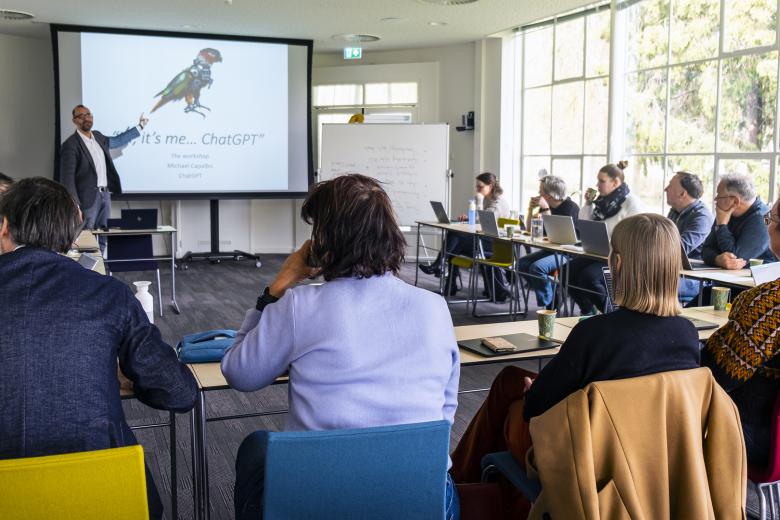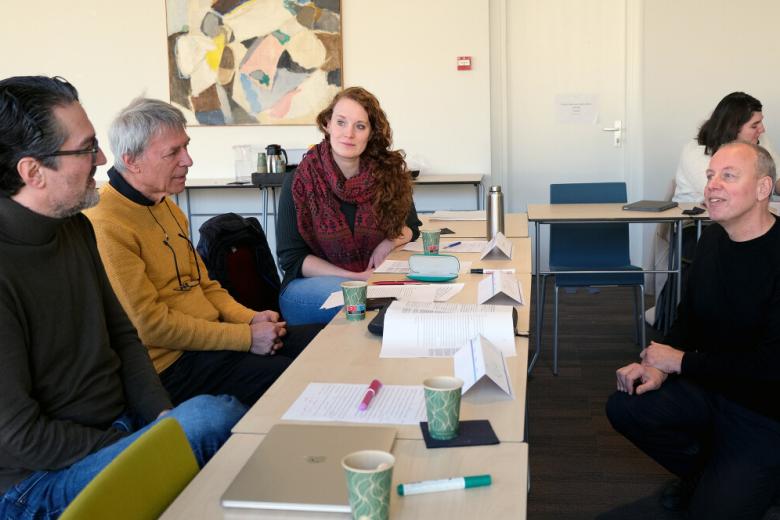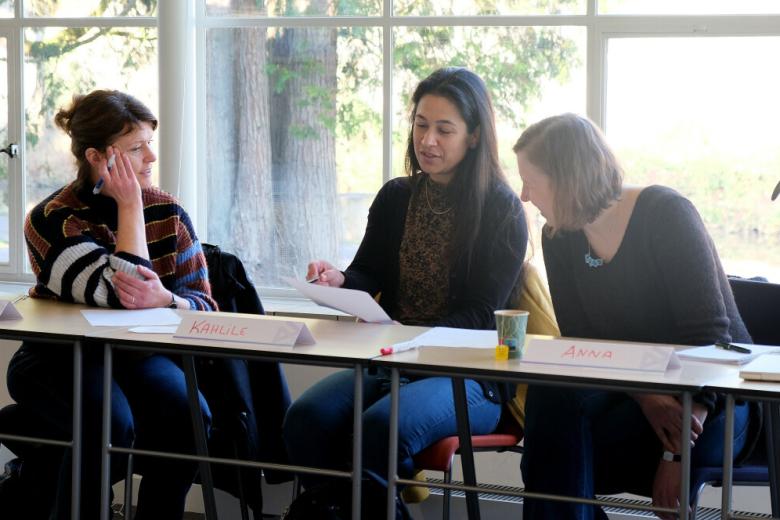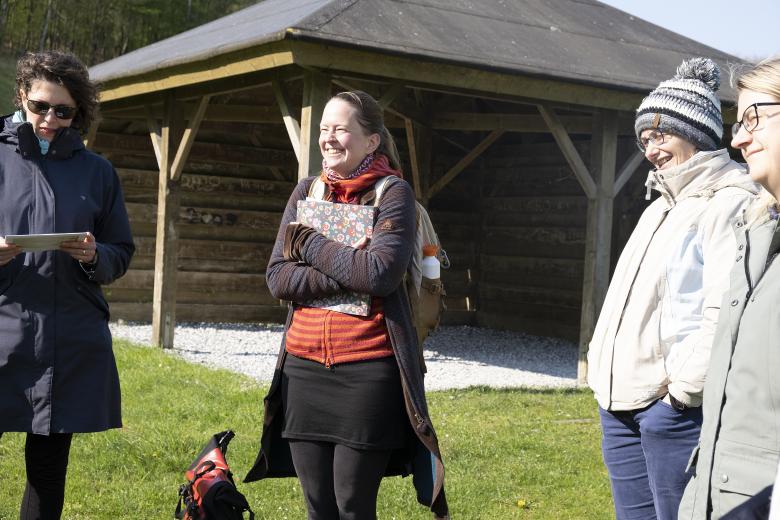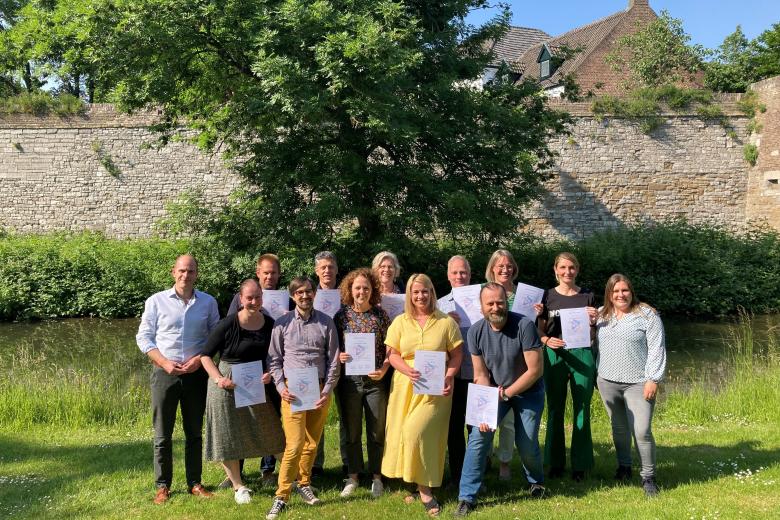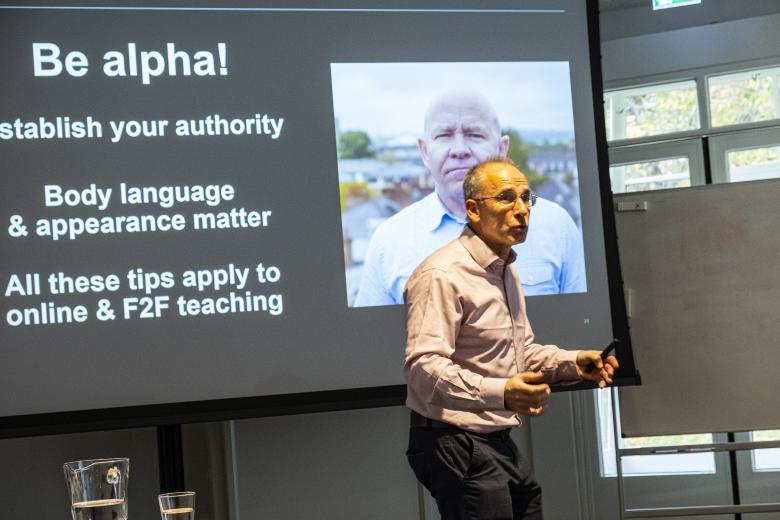Professional development for teaching & learning
To further promote the quality of education and help staff to excel in their educational roles, Maastricht University (UM) offers a broad range of professional development opportunities for all teaching staff at all stages of their career.
All members of teaching staff involved in developing and delivering education are thereby encouraged to reflect on their knowledge and skills and develop their teaching competencies further.
The UM professional development offer for teaching and learning includes:
- onboarding for all new teaching staff (which may include elements from the following stages);
- training for all new staff involved in teaching on Problem-Based Learning (PBL);
- the University Teaching Qualification (UTQ or Basiskwalificatie Onderwijs (BKO) in Dutch) (UM login);
- Continuing Professional Development (CPD), which also includes an annual Inspiring Educational Leadership trajectory;
- training for board members (such as Board of Examiners, Education Programme Committees and Council members).
CPD activities
Find the full workshop calendar under staff training or in the EDLAB group on UMployee (Intranet login).
If you would like to work on your professionalisation in your own time and space, we invite you to check out the following options:
- Teaching and learning modules for UM educators on Canvas
- Various teaching and learning webinars via the EDLAB group on UMployee (Intranet login)
- Beyond UM: ongoing professional development courses and webinars at other Dutch universities. Check the offer on UMployee. (Intranet login)
Continuing Professional Development (CPD)
In order to facilitate the continuous learning of teaching staff, UM allocates dedicated time each year for Continuing Professional Development (CPD). This opportunity is specifically tailored for UM staff holding a University Teaching Qualification (UTQ) and a teaching appointment of more than 160 hours per academic year, regardless of individual Full-Time Equivalent (FTE).
Diverse learning opportunities
CPD at UM is a versatile initiative, offering opportunities to learn and draw inspiration from the experiences of others. Unlike following a fixed trajectory of activities, participants have the flexibility to make personal choices regarding what, when, and how to undertake CPD, both formally and informally.
Formal and informal learning
Participation in CPD may involve engaging in formal training sessions, held at various locations like EDLAB, the University Library, or within the faculties. However, it also encompasses informal learning on the job, as well as gaining insights from peers, the broader teaching community, or independent exploration.
Online resources for teaching staff
Valuable online resources for teaching staff, including knowledge clips on education and recordings of previous webinars, are available on UMployee. These resources serve as a readily accessible hub for ongoing learning and professional development.
Educational leadership trajectory
For highly experienced staff in educational leadership roles, particularly those responsible for managing or coordinating a significant portion of education within their faculty, EDLAB offers an annual trajectory known as "Inspiring Educational Leadership." This trajectory is an integral part of their CPD and aims to equip participants with relevant skills for their responsibilities, providing valuable insights into best practices in education, innovation, and change management.
Board and committee training
Each year, EDLAB organises introductory training workshops for all new members of the UM Boards of Examiners (BoE), Education Programme Committees (EPCs) and the University Council. If you have a role in any of these committees or councils, you will receive an invitation to this training from your Chair. Should you have requests for any specific thematic training for your team, please get in touch with us directly.
Contact information
For further details and inquiries, teaching staff can reach out to EDLAB's Senior Coordinator of Professional Development for Teaching & Learning, Donna Carroll. Her expertise and guidance can help navigate the diverse opportunities within the CPD framework at UM.
